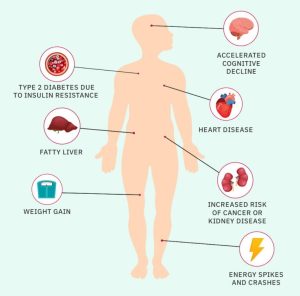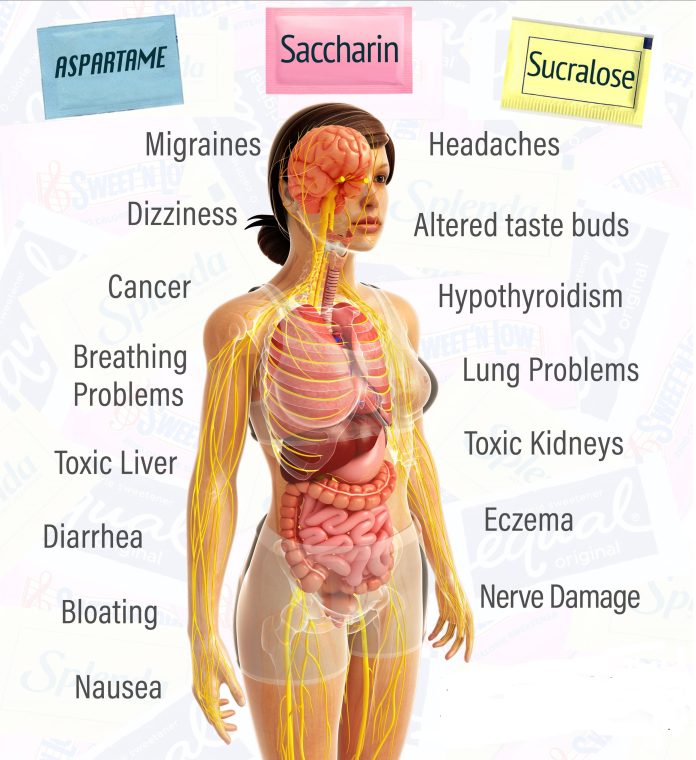The Director for Nutrition and Food Safety at the World Health Organisation, Francesco Branca, has warned that, contrary to popular belief, replacing sugars with Non Sugar Sweeteners does not help with weight control in the long term.
“People need to consider other ways to reduce free sugar intake, such as consuming food with naturally occurring sugars, like fruit, or unsweetened food and beverages,” Branca warns.
Continuing, she said, “Non Sugar Sweeteners are not essential dietary factors and have no nutritional value. People should reduce the sweetness of their diet altogether, starting early in life, to improve their health.
people now use non-sugar sweeteners following the over 150% increase in the cost of sugar
“The recommendation applies to all people except individuals with pre-existing diabetes and includes all synthetic and naturally occurring or modified non-nutritive sweeteners that are not classified as sugars found in manufactured foods and beverages, or sold on their own to be added to foods and beverages by consumers.”
The WHO listed non-sugar sweeteners as acesulfame K, saccharin, aspartame, advantame, cyclamates, neotame, sucralose, stevia and stevia derivatives, saying that long-term consumption of these may be harmful to health.

“The recommendation does not apply to personal care and hygiene products containing non-sugar sweeteners, such as toothpaste, skin cream, and medications; or to low-calorie sugars and sugar alcohols (polyols), which are sugars or sugar derivatives containing calories and are therefore not considered non-sugar sweeteners,” WHO added.
Non Sugar Sweeteners have no nutritional value. People should reduce the sweetness of their diet altogether
A Nutritionist and Founder, Corlerns Foods Ltd, Awka, Anambra State, Obiora Chukwunulu, said the reason many people now use non-sugar sweeteners following the over 150 per cent increase in the cost of sugar is because many sugar substitutes taste sweeter than sugar.
“So, a very little quantity of this is needed to sweeten foods and drinks, yet it is cheaper.

“The quantity of sugar you will need to sweeten a 50-litre of dough will cost you a fortune, but just a little quantity of saccharin, which will cost you less, will do justice to it. What N500 saccharin will do, N1,000 sugar will not do.
“From the business point of view, food manufacturers and processing companies prefer it because it is going to maximise their profits but then, it is harmful to the body. There are safe quantities of these that can be used but when it goes beyond it, it becomes risky.
“This is why you experience those undesirable aftertastes that leave you looking for something to get rid of it from your mouth. Some research has shown that long-term, daily use of artificial sweeteners may be linked to a higher risk of stroke, heart disease and death,” Chukwunulu explains.
consider other ways to reduce free sugar intake, such as consuming food with naturally occurring sugars, like fruit, or unsweetened food and beverages
Corroborating his views, a Consultant Cardiologist at the Lagos University Teaching Hospital, Idi-Araba, Dr. Akinsanya Olusegun-Joseph, said while more research is needed to understand in detail how non-sugar sweeteners affect human cardiovascular health, there is a link between non-sugar sweeteners, diabetes and hearts.
He noted that researchers have studied over 4,000 people in the United States and Europe and found those with higher blood erythritol (one of the sweeteners) levels were at elevated risk of experiencing an adverse cardiovascular event such as heart attack, stroke, or death.
there is a link between non-sugar sweeteners, diabetes and hearts
“Only what I will advise is a reduction in our sugar intake. Everything should be done in moderation. Diabetes affects other vascular health and is also a risk factor for cardiovascular diseases,” he added.
Source: PUNCH Online


